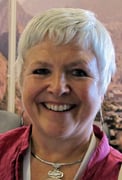Policy Bite from Amanda Howe - the upskilling debate
 español
español
Professor Amanda Howe, our new President–Elect, said in her speech at the WONCA Council that she would help with policy messages. She now takes up that challenge with her regular Policy Bites column - this being her third column.
We invite you to send us similar material - an important piece of policy from your own organisation or setting that relates to family medicine developments and that might be helpful to others. Please send a summary, a link, and make it short - its not Twitter, we shall allow up to 500 words.
email to [email protected]
Or join the online discussion
Login to the WONCA discussion forum
Join the WONCA discussion forum |
I have been in five countries for WONCA visits in the last six months where there has been an active national debate about the relationship between family medicine specialists (FMS) and non -vocationally qualified (NVQs) doctors working in primary care and community settings. In many countries, including the UK, there is a living history of doctors who are working as the main providers of first point of medical care without holding a specific family medicine qualification (such as the MRCGP in UK). They often greatly outnumber those who are FMS, especially in settings where FM is a relatively new discipline at postgraduate level. A parallel debate concerns those non-medically qualified healthcare workers who, particularly in less resourced settings, may be the main primary care workforce for large sectors of the population.
Why is this posing challenges? In all settings, health care workers are an important public resource, and essential to meeting the health needs of the people – so all these people are of potential value in the health care system. I think the concerns of our WONCA membership bodies arise when governments, having been persuaded of the case for the expansion of primary care, take one of the following policy positions:
- “We want to provide a large number of family medicine doctors – so let’s call anyone who has been working in a primary care setting for a number of years doing general medicine a family doctor / FMS”…
- “We will invest in family medicine doctors, providing they help us run the district hospital service”
- “We will invest in FM, but we shall still let any doctor work wherever they want without this qualification” – thus letting other specialists have direct access for patients, and/or continuing the existence of doctors without postgraduate qualifications in the service for the long term.
- “We would rather invest in cheaper workers (i.e. non-doctors) and let them run the community based services”.
Each country has to work with its own situation, history and resources, and we need to respect hard working health professionals whatever their background. Our President, Michael Kidd, said in his inaugural speech that “
Many countries have large numbers of general doctors who have received no postgraduate training but who wish to be recognized as specialist family doctors. We need to embrace all our colleagues in primary care. We need to find innovative ways that work in each of our countries to upskill and support the professional development of our peers. We can’t afford to disregard the contributions of all doctors working in primary care."
I have seen good examples of the following:
- WONCA member organisations forming direct links with groups representing NVQs to try to develop a shared solution
- A national position that reiterates the strategic aim of FMS as leads for community teams, as well as direct delivery of acute and urgent care
- Advocacy for a deadline beyond which only those qualifying in FM can hold that status in the system – this has to be coupled with a system that requires the population to be registered with an FM specialist and avoids direct to specialist self-referral.
- A planned up-skilling of NVQs over a period of time (‘fast track’) with an FM qualification at the end of the period. This may be coupled with a ‘grandfather’ clause – for example, doctors over 50 can continue to work as an NVQ but those below must upskill.
In general, the public health adage of ‘shift the whole system up a gear’ may provide the best strategy – aim to get more people training in FM, while also adding to the competencies of those other doctors and health professionals providing primary care. The implication here is that we have to aim to train our own discipline but also others working with us in primary care; and to persuade governments that both types of worker are needed. As Michael Kidd has said “
We cannot afford to leave anyone behind!”
Finally, WONCA does not seem to have a specific policy statement on this issue. I think we believe that there should be a family medicine doctor (FMS) for every family. This would not exclude other doctors and workers, but would make it clear that we expect there to be an aim of an FMS for all. Views welcome!
Prof Amanda Howe
WONCa President Elect
December 2013
The author is grateful for comments from Dr John Wynn Jones; the President, Prof Michael Kidd; and WONCA executive Member-at Large, Dr Luisa Pettigrew.